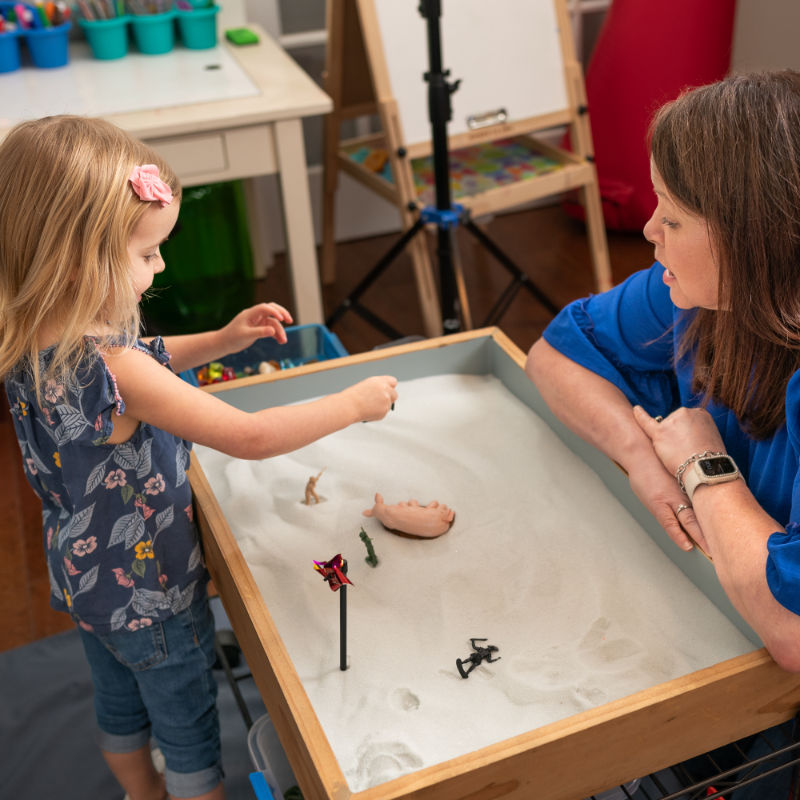Whether you came across play therapy through a Google search about children’s mental health or you’ve been referred by another medical professional, you’re wondering what play therapy is all about. You want to help your child but you’re a little unsure that play therapy is the right fit. We get it. We are parents too. Let’s talk about some common misconceptions about play therapy.
Misconception #1: My child can just play at home.
Fact: Play is the language of children and kids play to try and work through their struggles and make sense of their world. A trained registered play therapist will be able to understand and support your child as they work through their struggles. They will provide the time, tools, and opportunity for your child to make meaning of their experiences and work towards their healing.
Misconception #2: Kids who have emotional struggles or behavioral problems need a diagnosis and/or medication.
Fact: We tell parents that all children can benefit from play therapy. Kids know what it is that they need to work through even when they can’t articulate it. They want to feel better. Play therapy sessions can give them the space to express themselves and understand the things going on in their lives. Your child’s therapist will tell you if they think further professional advice is warranted and can provide referrals to appropriate professionals.
Misconception #3: The therapist needs to talk with my child and tell them what to do to feel better.
Fact: Children are not cognitive beings. They don’t talk through things the way we do as adults. In fact in play therapy if a child chooses not to talk at all, that is perfectly fine. Children actually don’t want to stay “stuck”. They want to feel better and behave in more self-enhancing ways. Play therapy allows a child to work through what is keeping them stuck so they can gain better self-regulation and feel better about themselves.
Misconception #4: If my child needs play therapy, I must have done something wrong as a parent.
Fact: You are here reading this information which means you are seeking help for your child. Children are always trying to make meaning out of what is happening in their world. Sometimes things that we take for granted as adults can be scary or frightening to a child. This doesn’t mean that it’s too late. In fact, the earlier a child gets the support they need, the better the outcomes.
Misconception #5: My child is going to play therapy so I don’t need to be involved.
Fact: Actually nothing could be further from the truth. You play a crucial role in the life of your child. Your child is absolutely getting a safe space to process their emotions in the play room but they need your support. Your play therapist will work with you to help you gain valuable insight into your child’s struggles and the best ways to support them at home.
Misconception #6: My child just needs to “follow the rules” at home/school.
Fact: The long term goal of play therapy is that a child learns to better regulate their own emotions. When we demand compliance in children, typically a child learns to shut down and ignore their feelings and their needs. We want to empower children to develop their own self-control. Play therapy allows a child to learn that they can manage their emotions and handle challenging situations.
Still wondering if a Richmond, Texas play therapist is the right mental health professional for your child?
Please call or text us at 832-521-8809 for a free parent consultation. We can help you determine if play therapy is right for your child. We look forward to meeting with you.


